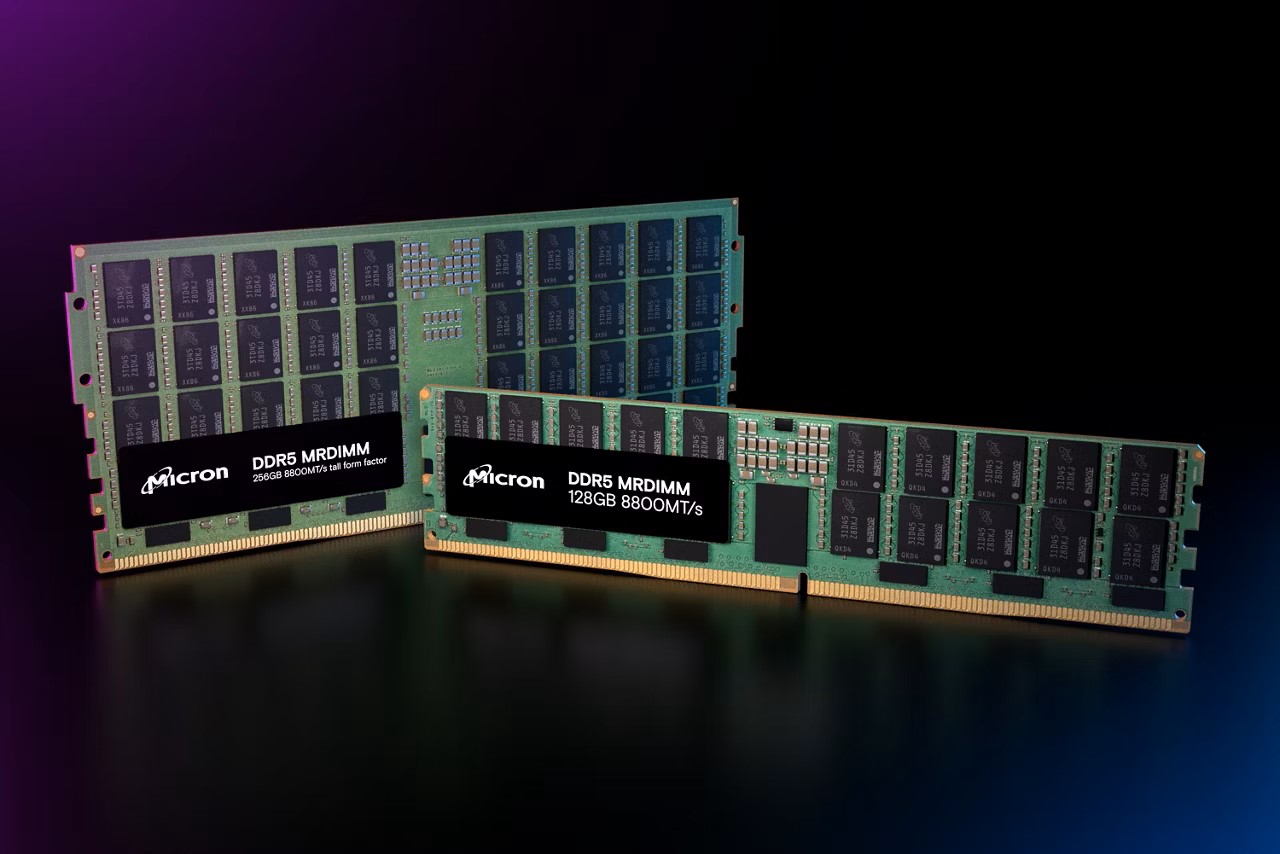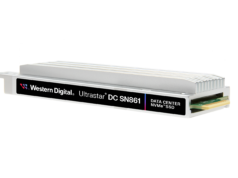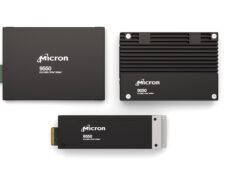Micron Technology has announced the availability of its multiplexed rank dual inline memory modules (MRDIMMs), designed to meet the demands of high-performance computing (HPC) and AI applications. The new MRDIMMs offer capacities up to 256GB and reduce latency by up to 40% compared to traditional TSV RDIMMs. Praveen Vaidyanathan, vice president and general manager of Micron’s Compute Products Group, stated, “Micron’s latest innovative main memory solution, MRDIMM, delivers the much-needed bandwidth and capacity at lower latency to scale AI inference and HPC applications on next-generation server platforms.” More details can be found on the Micron MRDIMM memory page.
The MRDIMMs adhere to DDR5 standards, offering up to a 39% increase in effective memory bandwidth and more than 15% improvement in bus efficiency. They also support Intel® Xeon® 6 processors and provide up to 40% lower latency compared to RDIMMs, optimizing performance for demanding data center workloads. Matt Langman, vice president and general manager of Datacenter Product Management at Intel, noted, “MRDIMMs provide customers a full choice of higher bandwidth, lower latencies, and capacity points for HPC, AI, and a plethora of workloads.” For more information, visit Micron MRDIMM memory.
Available in capacities from 32GB to 256GB, the MRDIMMs come in both standard and tall form factors, suitable for high-performance 1U and 2U servers. The modules feature improved thermal design, reducing DRAM temperatures by up to 20 degrees Celsius, which helps with cooling efficiency and energy optimization in data centers. Scott Tease, vice president and general manager of AI and High-Performance Computing at Lenovo, commented, “Micron MRDIMMs will help close the bandwidth gap for memory-intensive workloads like AI inference, AI retraining, and countless high-performance computing workloads.”
Micron’s MRDIMMs are currently available for sampling and are expected to start shipping in volume in the latter half of 2024. Future generations of MRDIMMs are projected to deliver up to 45% better memory bandwidth per channel compared to similar-generation RDIMMs. For further details on these innovations, visit Micron MRDIMM memory.





